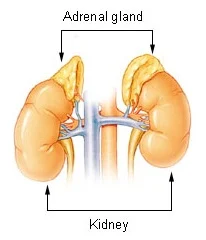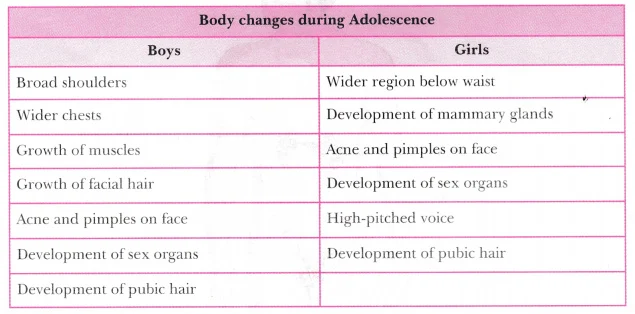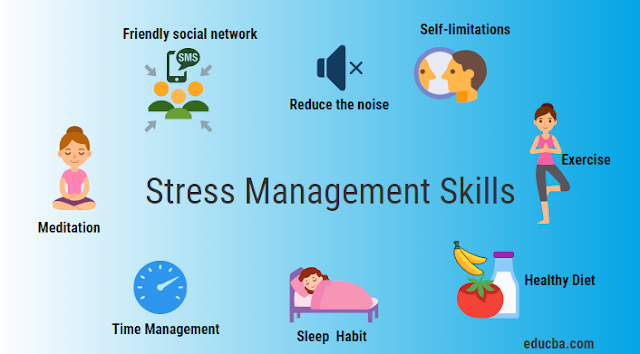8th Biology Endocrine System of Humans
Class 8th Science
ICSE/ CBSE Notes-
For more Notes click this link https://cbsenotesallsub.blogspot.com/
8th Biology
Endocrine System of Humans
Hormones
- Hormones are chemical messengers that are secreted directly into the blood, which carries them to organs and tissues of the body to exert their functions
- The hormones are produced in special organs which are called Endocrine glands.
- Endocrine glands have no ducts.
- Endocrine glands glands are also called ductless glands.
- Hormones help in maintaining a constant environment inside the body.
- It adjusting the amount of salt and water in our body tissues, sugar in the blood and salt in the sweat.
- It produce long term changes such as a child growth and sexual maturation.
- It expressing the emotion such as fear,anger ,happiness etc.
For more Notes click this link https://cbsenotesallsub.blogspot.com/
- Exocrine glands
- Endocrine glands
- Exocrine glands
- It maintain contact with the body surface by a duct
- The secretions of exocrine glands are sent through ducts directly to the organ.
- like Salivary glands , tear glands ,sweat glands.
For more Notes click this link https://cbsenotesallsub.blogspot.com/
2.Endocrine glands
- The Endocrine glands are ductless glands.
- Its secretions are released directly in to the blood.
- The secretions of endocrine glands are called Hormones.
For more Notes click this link https://cbsenotesallsub.blogspot.com/
Difference between Endocrine glands and Exocrine glands
For more Notes click this link https://cbsenotesallsub.blogspot.com/
Hormonal Glands In Human being
- Different Endocrine Glands are present in body of human being (Male and Female).
- Major Endocrine glands are given as below.
- Pituitary Gland
- Thyroid Gland
- Parathyroid Gland
- Adrenal Gland
- Pancreas Gland
- Testis Gland - in male body
- Ovaries Gland- in Female body
1- Pituitary Gland
- Pituitary Gland is known as master gland.
- It is placed at the base of the brain.
- It regulate the activity of other endocrine glads.
- Growth hormone which control the growth of the body is secreted by the pituitary gland.
- It stimulates the thyroid gland to produce thyroxine.
- It stimulates secretion of Prolactin which is necessary for producing milk after child birth in female body.
- It stimulate gonad stimulating hormones to regulate the activities of testis and ovary.
For more Notes click this link https://cbsenotesallsub.blogspot.com/
- The thyroid is a butterfly-shaped gland that sits low on the front of the neck.
- The thyroid secretes several hormones, collectively called thyroid hormones.
- The main hormone is thyroxine, also called T4.
- Thyroid hormones act throughout the body, influencing metabolism, growth and development, and body temperature.
- Its over secretion make the person over active.
- Its less secretion makes the person weak and inactive.
For more Notes click this link https://cbsenotesallsub.blogspot.com/
- Parathyroid glands are four small glands of the endocrine system which regulate the calcium in our bodies.
- Parathyroid glands are located in the neck behind the thyroid where they continuously monitor and regulate blood calcium levels.
- Parathyroid glands control the calcium levels in our blood, in our bones, and throughout our body.
- Parathyroid glands regulate the calcium by producing a hormone called Parathyroid Hormone (PTH).
- The adrenal glands are small glands that sit above the kidneys in the upper abdomen. They produce and release several hormones in the body.
- The adrenal glands have two parts: the cortex and the medulla.
- The cortex is the outer part of the gland. It produces the hormones cortisol and aldosterone.
- The medulla, meanwhile, is the inner part of the gland. It produces the hormones adrenaline and noradrenaline.
- The pancreas is located behind the stomach in the upper left abdomen.
- It is surrounded by other organs including the small intestine, liver, and spleen
- It plays an essential role in converting the food we eat into fuel for the body's cells.
- The pancreas has two main functions: an exocrine function that helps in digestion and an endocrine function that regulates blood sugar.
- The main function of the testes is producing and storing sperm.
- The testes also produce a hormone called testosterone
- This hormone is responsible for sex drive, fertility, and the development of muscle and bone mass.
For more Notes click this link https://cbsenotesallsub.blogspot.com/
- Ovaries are the female gonads
- It is the primary female reproductive organs.
- These glands have three important functions:
- they secrete hormones
- they protect the eggs
- they release eggs for possible fertilization.
For more Notes click this link https://cbsenotesallsub.blogspot.com/
Some important points Remember it
Table -1
For more Notes click this link https://cbsenotesallsub.blogspot.com/
- Diabetes mellitus, commonly known as diabetes, is a metabolic disease that causes high blood sugar.
- The hormone insulin moves sugar from the blood into your cells to be stored or used for energy.
- With diabetes, your body either doesn’t make enough insulin or can’t effectively use the insulin it does make.
- Untreated high blood sugar from diabetes can damage your nerves, eyes, kidneys, and other organs.
- It is an autoimmune disease.
- The immune system attacks and destroys cells in the pancreas, where insulin is made.
- About 10 percent of people with diabetes have this type.
- In this type symptoms are - increased hunger ,thirst and frequent urination
- It occurs when your body becomes resistant to insulin, and sugar builds up in your blood.
- It occurs when your blood sugar is higher than normal, but it’s not high enough for a diagnosis of type 2 diabetes.
- It is high blood sugar during pregnancy.
- Insulin-blocking hormones produced by the placenta cause this type of diabetes.
- Adolescence is the period of transition between childhood and adulthood.
- Children who are entering adolescence are going through many changes (physical, personality and social developmental).
- High rate of growth also occurs during adolescence age.
- Adolescence age ie beginning about 11 year and up to about 14 year.
- Boys grow an average rate of 10cm a year.
- Girls grow at an average rate 8 cm a year.
- Between the age of 11 to 14 the testes start to make sperms and ovaries start to make eggs.
- For these change of body the hormones are responsible.
- The pituitary gland start to make hormones.
- It makes active the sex organ.
- The sex organ also produce the sex hormones.
- These hormones take place to changes in boy and girls .
- At Adolescence age emotion can be developed in our body.
- Due to hormones mood changes and increase so many changes.
- In Adolescent age there are lot of changes in our body.
- In Adolescent age body produce more oil and sweat ,so it is more important to clean it
- Good hygienic habits help us to keep our body strong and healthy.
- Cleaning of the body prevent diseases, and good appearance.
- Stress is the feeling of too much pressure or mental or emotional.
- Mental pressure become stress when we feel.
- For reducing the stress follows some steps
- Adequate rest and sleep
- reading books , playing game , listening music etc
- manage your time and work
- Do yoga and Meditation















Comments
Post a Comment
Please do not enter any spam link in the comment box..